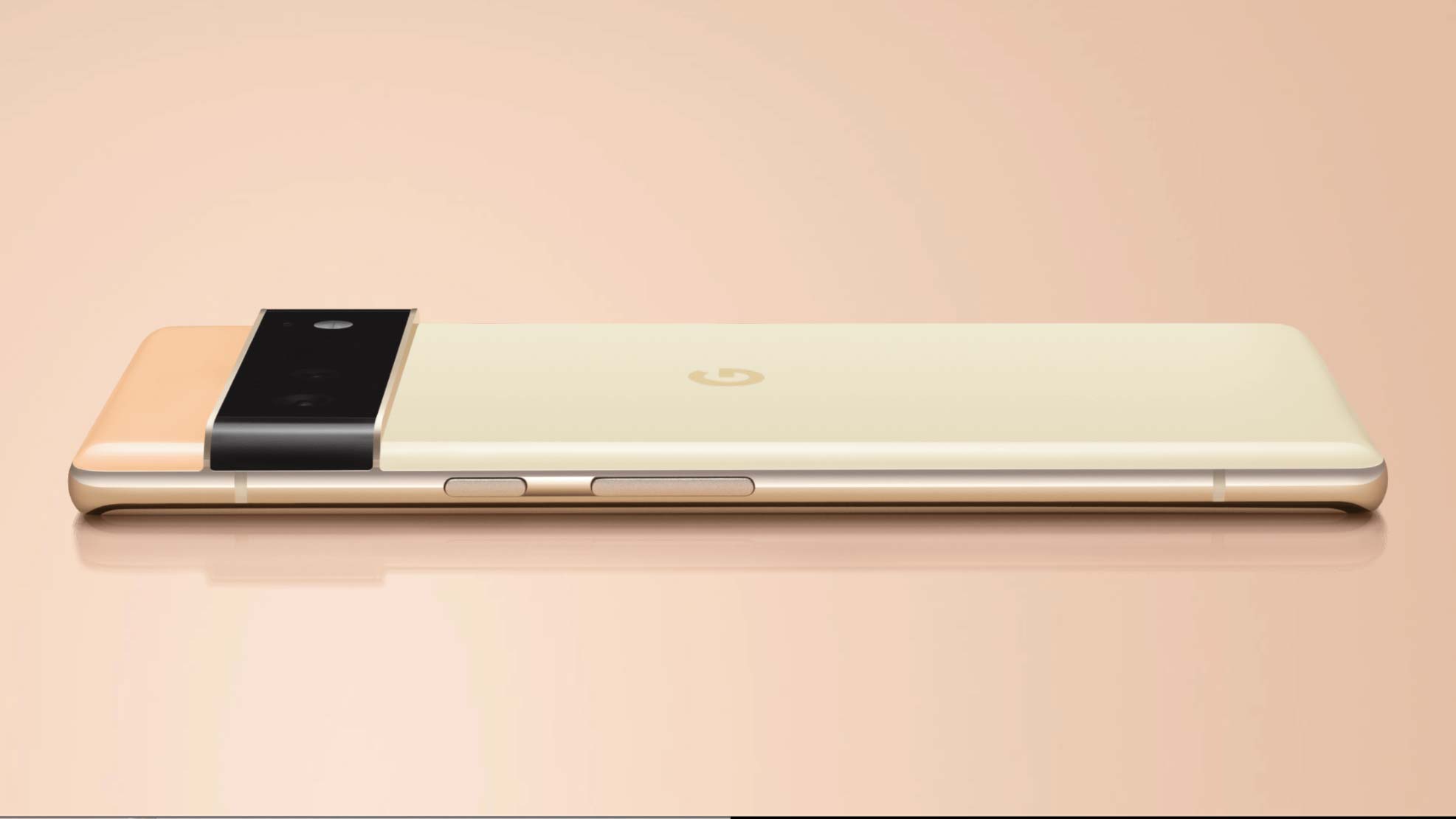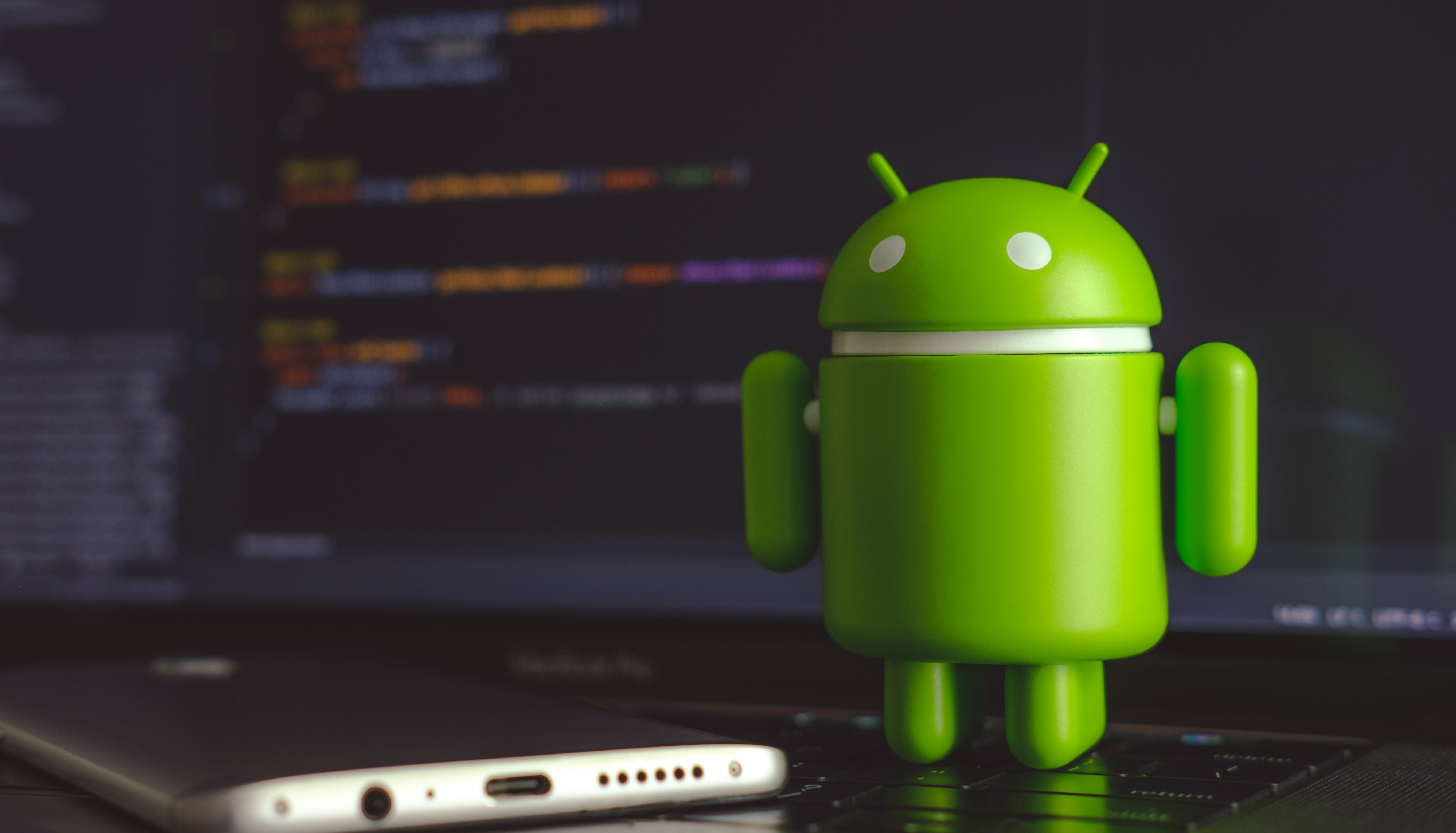Sorry Google, but five years of Pixel 6 security updates won't be good enough
Google needs to offer full Android updates for five years if it wants the Pixel 6 to catch my eye

Comparing iOS and Android is like comparing apples and oranges: they’re both mobile operating systems that are similar, but also remarkably different — especially where software updates are concerned.
Apple has long been a flag bearer for long-term device supprot and updates, now offering full iOS updates to every iPhone as far back as the six-year old iPhone 6S. Conversely, Android users are lucky if they get support past the three year mark, which is why a leak promising five years of security updates for the Google Pixel 6 is a big deal. But as important a step as it is, it’s still not good enough.
- Everything we know about the Google Pixel 6
- This could potentially be the smartest way to get a Google Pixel 6
- Plus: Google Pixel 6 benchmarks just leaked — how powerful will it be?
The majority of flagship Android phones will only ever get two years of full Android support. So if you keep your phone for much longer, the system software will be staying as is with no fresh updates. However manufacturers do offer three years of security updates, which keeps your device safe from any new threats that are identified.
There are exceptions to this, however. Google offers three years of full Android updates on Pixel devices. Earlier this year, Samsung also announced that every phone sold from 2019 onwards would receive four years of security updates and three years of full Android updates.
With the Pixel 6, Google is apparently stepping up its game once more with five years of security updates, which would put it very close to Apple’s current upper limit on older device support.
However, Apple’s system generally rolls potential security fixes in with iOS as an everything-or-nothing approach, ensuring older devices also get everything newer versions of the iOS software has to offer. Whereas Google will deliver regular security updates independent of Android upgrades.
Security is important, and it’s absolutely a good thing that Google might be offering an extra two years of support on the Pixel 6 series (and potentially future Pixel devices). However Google needs to step up its game where full Android support is concerned as well.
Because compared to Apple, the paltry support offered by Google and Android OEMs is straight-up embarrassing.
Apple's long-term iOS support embarrasses Android phones
If you were to go out and buy an iPhone 13 right now, you’ll know that whatever happens Apple will continue to support it for years to come.
While Apple never announces how many years of iOS update support its phones will get, you can take solace that support won't be paltry. Simply look at the evidence: 2013’s iPhone 5S got five years of support, receiving updates from iOS 7 through iOS 12. Meanwhile the iPhone 6S, which launched in 2015, is still getting software updates as part of iOS 15.
Comparatively, the Google Pixel 3, which launched three years after the iPhone 6S in 2018, will lose guaranteed software and security updates come May 2022. That essentially turns the phone into a time bomb, because barring anything seriously bad that requires emergency security updates, the phone is going to stay exactly the same until the end of time.
Meanwhile someone rocking an iPhone 6S, whether they had it since launch or picked up a used model, is not only protected, they're also able to enjoy the latest and best iOS features. Assuming it’s not a feature that relies on very specific hardware the phone lacks — like Face ID.
The only thing stopping Google is Google
The lack of sustained full updated for Android phones is nothing new, or surprising given the fragmentation in the Android ecosystem compared to Apple's laser-focus iOS on iPhone only approach.
Plenty of Android phones get the latest updates when they are new, but as time goes on, the updates available to them drop off steeply. That because even though Google may control the update cycle for Pixel devices, it can’t force other phone makers to do anything. No matter how hard it tries to encourage them to get on board with programs like Android One. That’s one of the unfortunate consequences of having Android as an open system.
But that doesn’t stop Google leading by example.

Android is as much a part of Google as search, Gmail, or even YouTube. When the mobile operating system is concerned, what Google says goes. If the company wanted to offer full Android support several years after a phone launches, it absolutely could; it’s not like there are any barriers in the way.
Google may not be able to force OEMs to do the same, but it can still make the case for extended Android support through its own actions. After all, as people hold onto their phones for longer, and society becomes increasingly reliant on phones and other technologies, having concrete support and security are essential.
You can’t do that unless someone is willing to offer it. As Apple has shown, there’s absolutely nothing stopping Google from doing that. And who knows, it might even convince some other phone makers to do the same. We can only hope.
- Google Pixel 6 vs Pixel 6 Pro: These are the biggest differences
Sign up to get the BEST of Tom's Guide direct to your inbox.
Get instant access to breaking news, the hottest reviews, great deals and helpful tips.

Tom is the Tom's Guide's UK Phones Editor, tackling the latest smartphone news and vocally expressing his opinions about upcoming features or changes. It's long way from his days as editor of Gizmodo UK, when pretty much everything was on the table. He’s usually found trying to squeeze another giant Lego set onto the shelf, draining very large cups of coffee, or complaining about how terrible his Smart TV is.
-
LouisDi What do you suppose the overlap between people that care about updates and those that keep their phones five years is? I can tell you in my experience, that audience is very small. I regularly support customers that have 7 year old phones running Android 4.4 and only now care because certain apps have stopped working. On the other side are the customers who care about the updates and ask the day they're released, for their 1 year old phones.Reply
Your piece typifies those written by most tech writers, it makes the assumption that those that write this stuff and those that read it are somehow typical consumers when that's the farthest possible from the truth as the average consumer doesn't know what version of Android their phone runs, doesn't know when they last received a security patch and has never heard of Tom's guide. -
guardianali This "article" is all kinds of messed up and short sighted.Reply
Making it seem like cause Apple supports 6 years of updates and android doesnt, android is doing bad.
Fact is that the vast vast vast majority of Iphone users are the sheep that upgrade their phones yearly...two max. Its a vanity and status thing. Why do you think they sell so many phones each year. Most of the sales arent growth...its old users buying new phones.
So put it in that context...Android offers 3 years (5 for pixel) of upgrades and patches...Apple users upgrade annually.
And BTW..the only reason apple offers 6 years isnt altruistic. Their OS gets fatter and more bloated each year...hence faster and faster "bionic chips". They entice earlier phones to upgrade cause then their performance tanks and gets sluggish, they are forced to upgrade. Its about money...not being nice. -
DaytonaB675 Is it just me or is Tom's guide like generally whiney and negative. Nothing is good enough nothing is right and there has always to be more and more. Are you kidding? Who's better? Ridiculous. Gladly the success of the device ain't depending on this authors here.Reply -
lexter99 Another iOS reviewer not registering a fundamental difference between iOS and Android.Reply
Virtually everything in Android has long been unbundled from the OS, including most core functionality, Play Services framework, networking overlay functions, AI, system apps etc. Nothing has been unbundled from iOS, it's monolithic, right down to core user apps. That's fine, but it means you have to have a complete iOS update just to update trivial functionality. Which is why their software lifecycle isn't agile. All components of an Android phone get independent updates often every month via simple app updates, no flashing/rebooting required. Vastly less impacting on the user. Also Pixel gets monthly security updates. The Android/Play frameworks are updated in the same way.
Consequently, virtually the only thing that isn't updated this way is the Android UI.
A Pixel phone, that has 5 years of security updates is functionally indistinguishable from an iPhone that has 5 years of full updates.
That's such a fundamental fact and so material to to entire topic of your article, that to not even passingly mention it eliminates any value in your article and tags you as either incompetent to write on this topic, or simply an Apple shill -
gdbjr Replylexter99 said:Another iOS reviewer not registering a fundamental difference between iOS and Android.
Virtually everything in Android has long been unbundled from the OS, including most core functionality, Play Services framework, networking overlay functions, AI, system apps etc. Nothing has been unbundled from iOS, it's monolithic, right down to core user apps. That's fine, but it means you have to have a complete iOS update just to update trivial functionality. Which is why their software lifecycle isn't agile. All components of an Android phone get independent updates often every month via simple app updates, no flashing/rebooting required. Vastly less impacting on the user. Also Pixel gets monthly security updates. The Android/Play frameworks are updated in the same way.
Consequently, virtually the only thing that isn't updated this way is the Android UI.
A Pixel phone, that has 5 years of security updates is functionally indistinguishable from an iPhone that has 5 years of full updates.
That's such a fundamental fact and so material to to entire topic of your article, that to not even passingly mention it eliminates any value in your article and tags you as either incompetent to write on this topic, or simply an Apple shill
So you are saying it is perfectly fine for a flagship android phone that ships with Android 12 and never gets updated past that version is fine? -
misc Five years would be great, and four is a step in the right direction. They also need to make battery replacement available for a reasonable price (say £50) and from a reputable service centre. That's the one Apple benefit I'd like to see them copy.Reply
